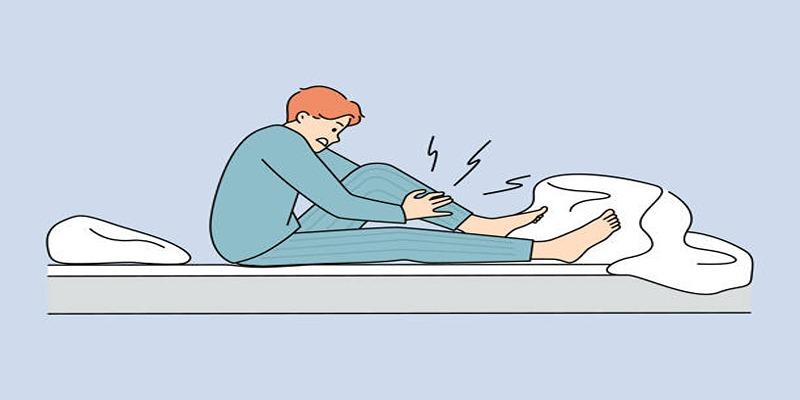Most people understand the value of sleep, but few consider the role their evening habits play in shaping it. The way you prepare for bed influences how quickly you fall asleep, how restful that sleep is, and how alert you feel the next day. A bedtime ritual isn’t about rigid rules—it’s about giving your body and mind consistent signals that it’s time to slow down. By creating this daily rhythm, you invite deeper rest, steadier mood, and more reliable energy. In many ways, the routine leading to sleep matters as much as the sleep itself.
Why Sleep Hygiene Matters?
Sleep hygiene is the collection of practices that shape how well and how consistently you rest. Just as oral hygiene protects teeth, sleep hygiene safeguards the quality of sleep. Without it, the body’s natural rhythms are disrupted, leading to fragmented rest, drowsy mornings, and lingering fatigue.
One key element of sleep hygiene is the circadian rhythm, the internal clock that governs sleep and wake cycles. When bedtime and wake-up times vary widely, this rhythm struggles to stay aligned. Over time, misalignment affects more than mood—it influences metabolism, blood pressure, and even immune defense. People with poor sleep hygiene often find themselves stuck in a loop of restless nights and sluggish days.
Good practices make the opposite true. A structured evening routine strengthens circadian signals, encouraging natural melatonin release and helping the brain prepare for rest. With consistent sleep hygiene, nights become more restorative, and mornings begin with a greater sense of clarity. It’s a quiet but powerful form of self-maintenance, one that shapes health more than most realize.
Building a Bedtime Ritual That Works
A bedtime ritual doesn’t need to be elaborate. What matters most is consistency, since repeated cues teach the body to associate certain activities with rest. Going to bed and waking up at the same times each day—even on weekends—helps establish this pattern.

The ritual can be built from simple acts that calm the senses. Dimming lights an hour before bed reduces stimulation and tells the brain night has arrived. Gentle stretches release muscular tension, while breathing exercises slow the heart rate. Some find that a warm bath helps, since the drop in body temperature afterward mimics the natural cooling that precedes sleep.
One of the greatest obstacles to sleep is the glow of screens. Phones, laptops, and televisions emit light that delays melatonin release, keeping the brain alert when it should be winding down. Replacing late-night scrolling with quiet reading, journaling, or listening to soothing sounds creates a calmer environment. Even brief rituals, when performed regularly, strengthen the signal that the day is complete.
The bedroom environment itself also deserves attention. A cool, dark, and quiet space reinforces the ritual's effect. Investing in comfortable bedding, reducing clutter, and reserving the bedroom for rest rather than work makes it easier for the mind to connect the space with sleep.
The Connection Between Ritual and Mental Health
Bedtime rituals support more than physical rest—they create space for mental balance. Stress and worry are leading causes of poor sleep, and nights of tossing and turning only increase anxiety. By incorporating calming practices, a ritual helps quiet the mind before it has the chance to spiral.
Writing down a short list of tasks for the next day can ease the mental load, preventing worries from resurfacing in the dark. Practices like mindfulness, guided imagery, or simple meditation help redirect focus away from lingering stress. Over time, this association between ritual and relaxation becomes stronger, making it easier to transition into sleep.
There’s also a psychological benefit to predictability. Humans naturally respond to routine, and having a familiar sequence before bed provides a sense of control. This stability is especially helpful during times of uncertainty, when anxiety might otherwise disturb rest.
Children often need bedtime routines to fall asleep, and adults are no different. A clear ritual signals the end of the day, reinforcing the boundaries between wakefulness and rest. That separation is vital in a world where work, screens, and responsibilities blur into every hour. By protecting a nightly rhythm, you give the mind permission to pause and recharge.
Long-Term Benefits of Good Sleep Hygiene
The effects of consistent bedtime rituals extend well beyond the night itself. Sleep plays a role in nearly every biological system. During deep stages of rest, the brain consolidates memory, cleanses itself of waste proteins, and restores cognitive resources. The immune system strengthens, making the body more resistant to illness. Hormones that regulate appetite and metabolism stabilize, which may explain why chronic sleep loss is linked with weight gain.

For athletes, quality sleep speeds recovery, sharpens reaction times, and reduces risk of injury. For students and professionals, it enhances focus, problem-solving skills, and creativity. Yet even outside of performance, the benefits are deeply practical: better mood regulation, lower risk of depression, and improved patience in relationships.
Over the long term, practicing good sleep hygiene contributes to longevity. Research links sufficient, high-quality sleep with reduced risk of cardiovascular disease, diabetes, and neurodegenerative conditions. A bedtime ritual may seem small, but its impact compounds, protecting both mind and body. Unlike short-term fixes such as caffeine or sleep medication, rituals become stronger the longer they are practiced. They transform restlessness into reliability, frustration into calm, and fatigue into lasting energy.
Conclusion
Sleep hygiene is less about rules and more about mindful care—care for the body’s rhythms, the mind’s need for calm, and the natural act of rest. A bedtime ritual, whether it involves stretching, journaling, or simply reading in dim light, marks the end of the day and helps the body transition into recovery. Respecting this nightly rhythm improves both sleep and the quality of waking hours. The rewards go well beyond rest, shaping mood, health, and energy in lasting ways. In a fast-paced world, creating space for a nightly reset may be one of the most valuable choices you make.












